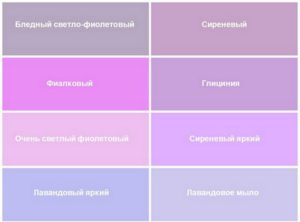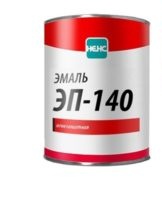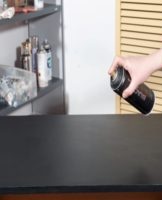Varieties of latex paints and what they are, the 8 main manufacturers
In the paint and varnish industry, oil and resin compositions have been replaced by water-dispersion ones. Emulsions are safer: they do not emit odor during operation and toxic substances during operation. But they have one drawback - they are less wear-resistant. To make the aqueous emulsion stable, latex is added to it. What is special about latex paint, what is it and where to apply it - you should find out in more detail.
general description
Latex paint is water based. It is just as sensitive to the destructive action of humidity as other aqueous emulsions, but only in the event of daily contact with large quantities of water. When exposed to condensation, the vapor lasts longer than conventional aqueous formulations. Resistance to harmful environmental influences is ensured by latex. The soft material gives elasticity to the painting. It is obtained from natural rubber - the viscous sap of tropical plants.The durable material increases the life of the coating.
Useful properties of latex paint:
- the absence of toxic substances and natural pigments makes the composition safe for use in children's rooms and public institutions;
- lets the walls breathe, does not retain steam;
- consumption per square meter - 100-500 milliliters.
Latex paint is economical and versatile compared to other aqueous formulations. The preparation and type of surface affect the durability of the coating. It is recommended to apply a primer before painting.
Varieties and their characteristics
The compositions differ in their binding components and purpose.
polyvinyl acetate
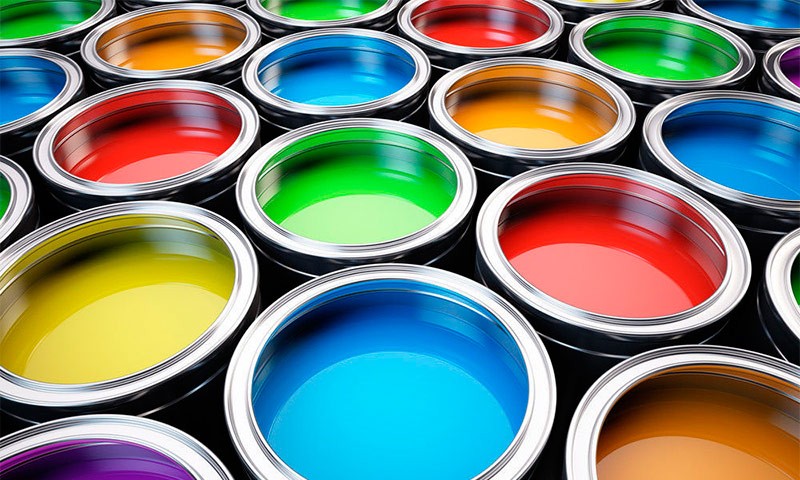
It is better to use polyvinyl acetate paint for painting the ceiling, walls inside heated rooms in hard-to-reach places.
Styrene-butadiene
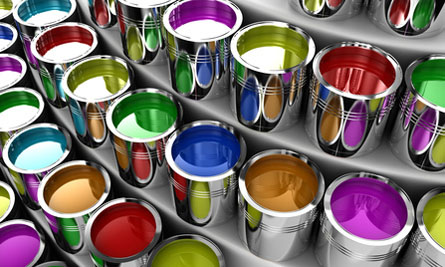
Styrene-butadiene paint is suitable for dark and rarely lit rooms, closets, hallways or closets.
Acrylosilicone
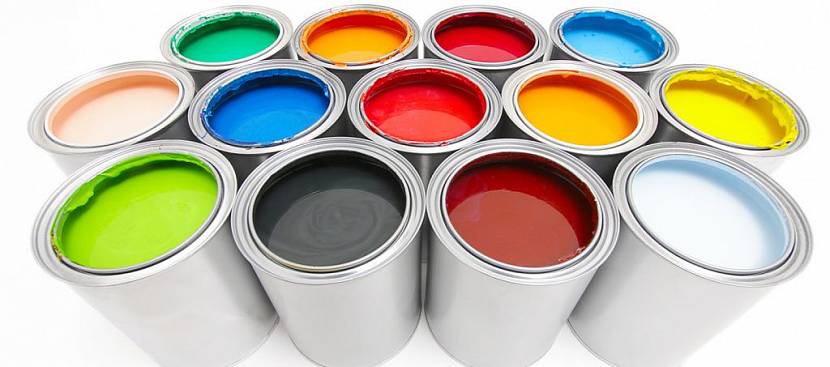
Acrylosilicone paint is similar to silicate compounds, costs less, and therefore replaces them.
Acrylic
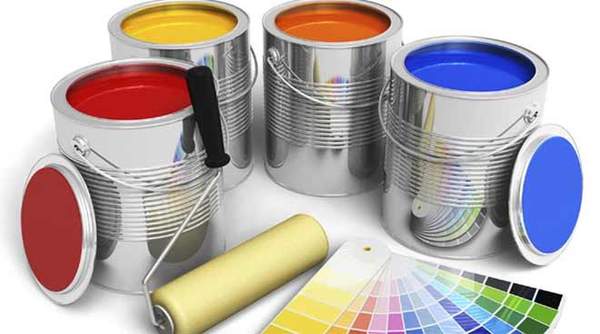
Acrylic latex paint has the same properties and durability as blended resin formulations.
Color pallet
Latex paint is available in gloss, matte and semi-matte. Matte compositions better hide irregularities, but they are more difficult to wash off, and glossy compositions expand the space of small rooms. Semi-matte paint washes off well and is suitable for rooms of different sizes.
Apps
Latex coloring compositions are suitable for exterior and interior work, residential, office and commercial premises. They are used to decorate various elements:
- facades, walls, floors and ceilings in wood, concrete, brick, plasterboard;
- plastered surfaces;
- suspended structures made of fibreboard, particle board;
- foam panels and plinths;
- plaster stucco moldings and decorations.
Latex paint is rarely used to paint metal due to its poor adhesion to a smooth surface.
Review of the best manufacturers
Seven brands of paints and varnishes stand out for their quality and reliability. The main characteristics of the paints are summarized in the table:
| Name | Consumption in square meters per liter | Drying time in hours | Packaging in liters |
| Tikkurila | 10 | 24 | 9 |
| Parade | 11 | 24 | 9 |
| Dulux | 14 | 24 | 10 |
| Dufa | 10 | 24 | 2,5 |
| DIN profilux | 6-8 | 24 | 14 |
| Pufas | 6-8 | 24 | 10 |
| "Lakra" | 6-8 | 1-2 | 14 |
| "Texas" | 9-11 | 24 | 9 |
Compositions are the most popular in the market of polymer finishing materials, but each has its own disadvantages and advantages.
Tikkurila
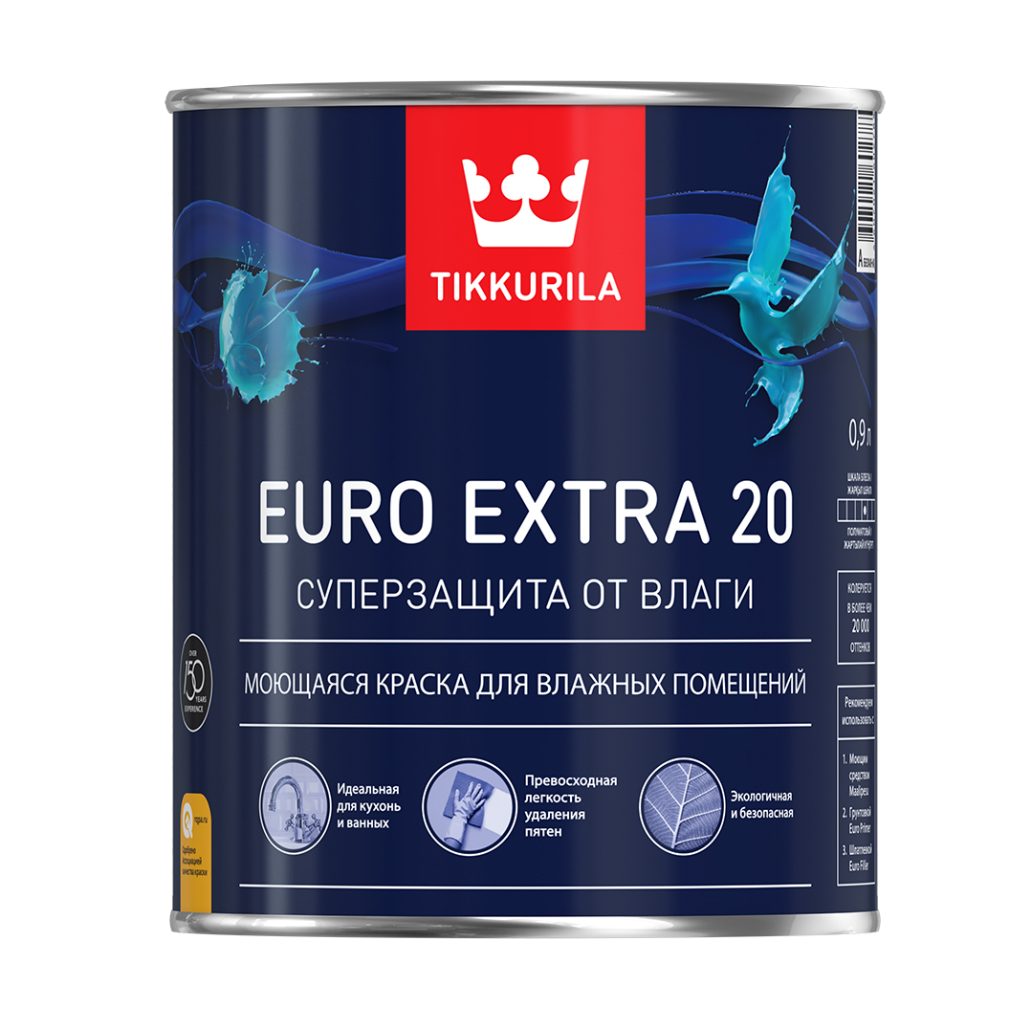
The paint is well applied to the putty and the non-woven wallpaper, does not spread, is durable, therefore it justifies the high repair costs.
Parade
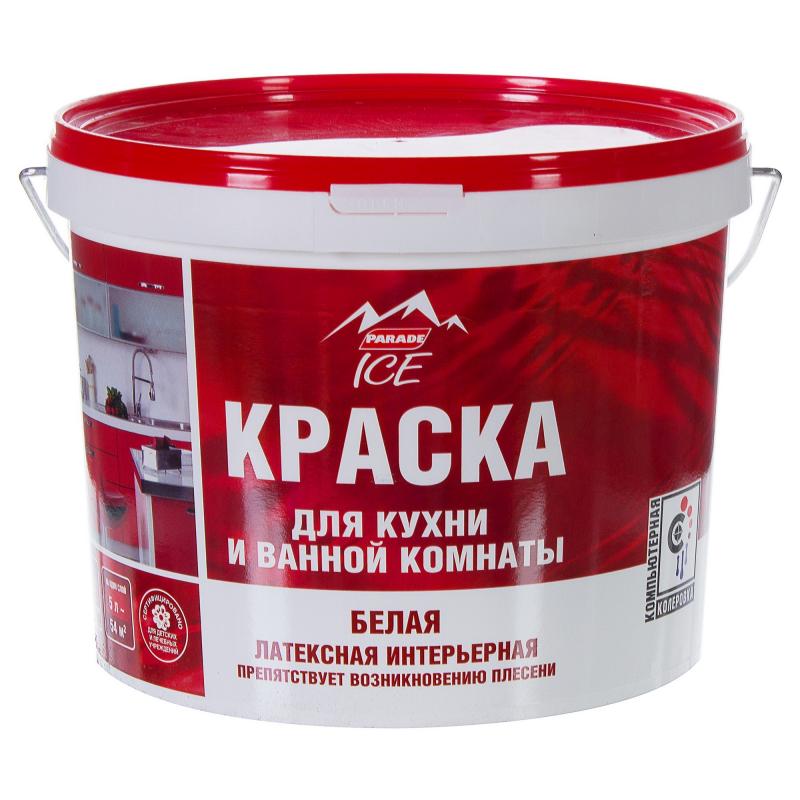
There are no toxic impurities in the composition, so it can be used in children's and public institutions.
Dulux
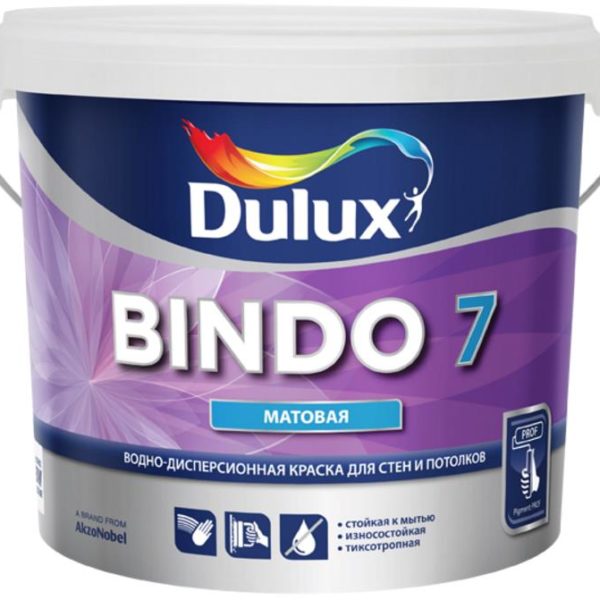
Eco-friendly paint is suitable for children's room.
The walls should first be putty, but when painting relief wallpaper, the composition will emphasize their structure.
Dufa
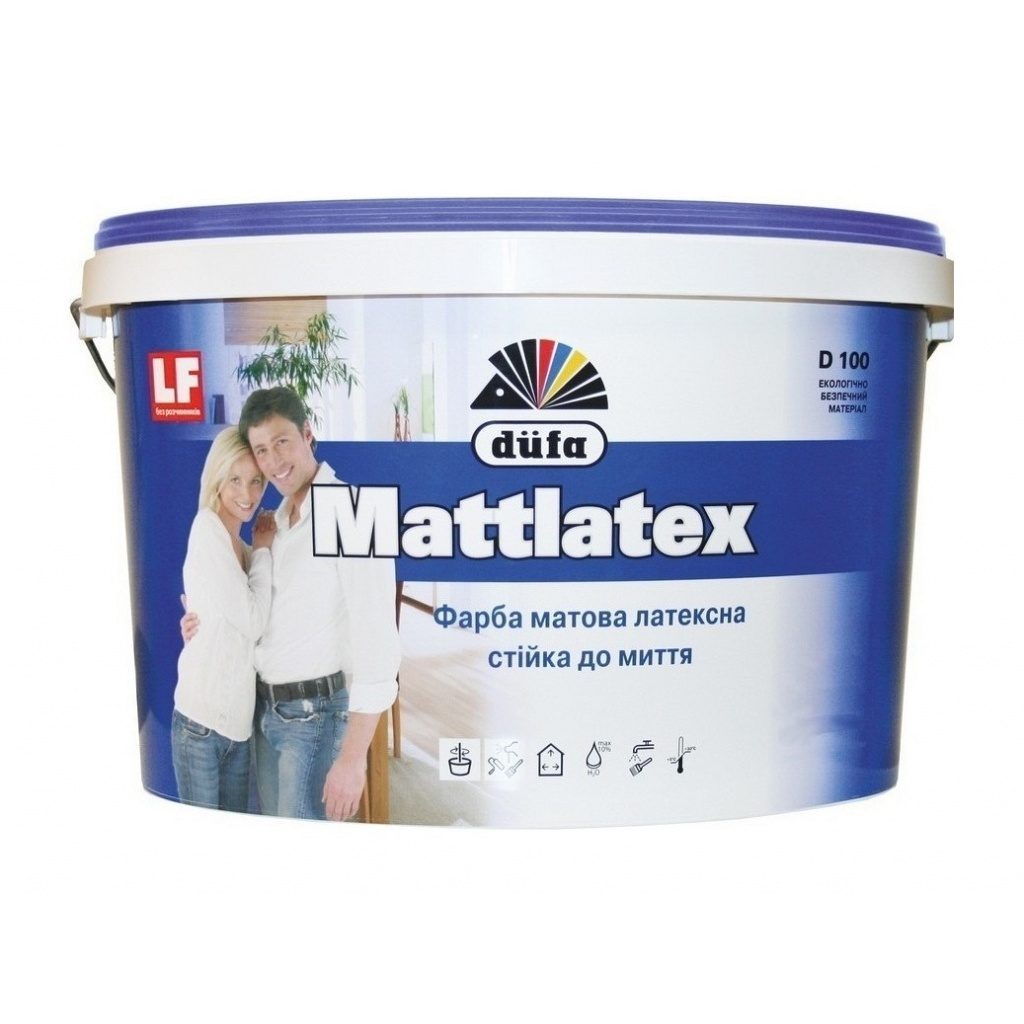
The composition is suitable for plasterboard ceilings and any surfaces, is resistant to wet cleaning.
DIN profilux

Inexpensive coating suitable for walls and slopes.
The paint must be diluted with a little water, otherwise its hiding power will decrease.
Pufas

The composition is suitable for painting concrete, brick, plasterboard, plaster walls and ceilings.
After drying, a silky matte surface is formed.
"Lakra"
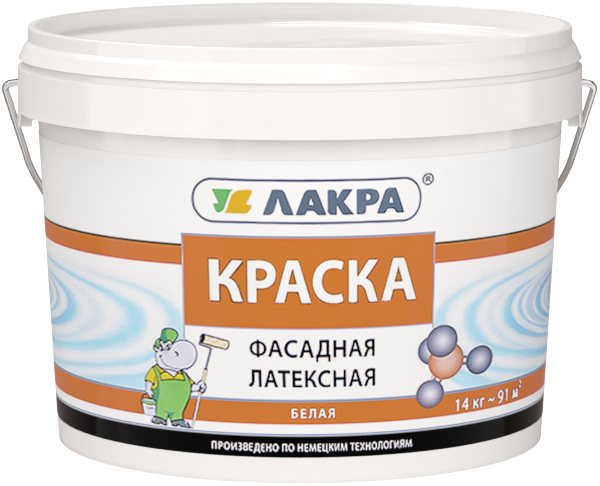
The interior waterproof paint is made according to German technology.
An inexpensive composition suitable for coloring wallpaper.
"Texas"
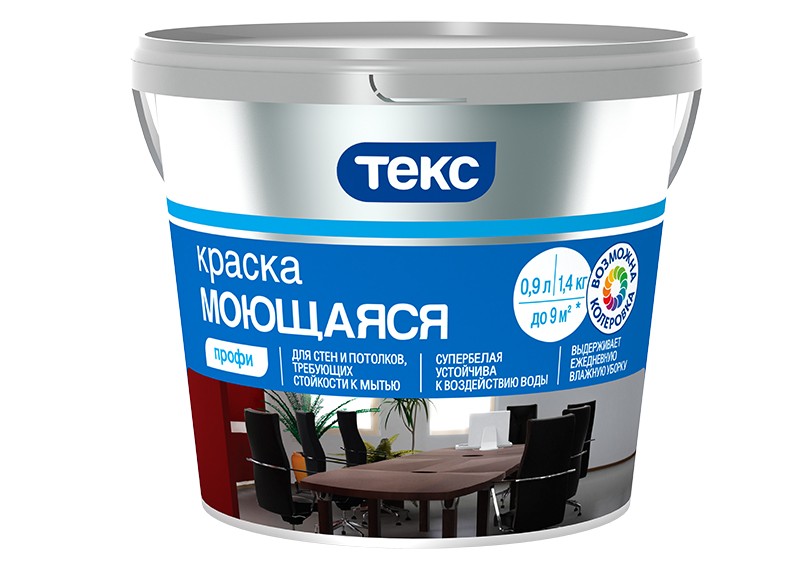
Coating of domestic production is suitable for walls and ceilings.
White paint is subject to staining, the quality does not differ from foreign analogues and is cheaper.
How to choose the right composition
When choosing a latex coating, pay attention to the following parameters:
- type of surface - the shine of gloss irritates with a long stay in the room, matte paint is more often chosen for the living room;
- wear resistance - the number of abrasion cycles;
- hiding power - paint consumption per square meter;
- thixotropy - the rate of thickening.
The composition will be of high quality with low consumption and the first class of wear resistance.
Work rules
They work with latex paint according to the traditional scheme - they prepare the surface and paint with a brush, roller or spray.
Surface preparation
How to prepare the walls:
- clean from dust, old coating, rust;
- fill large holes;
- sand for better grip;
- coat with primer.
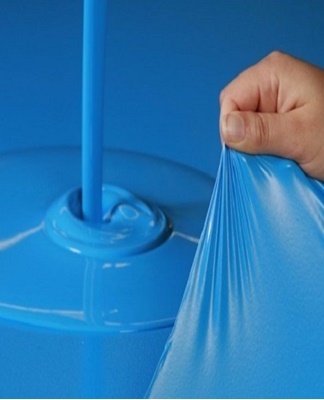
If the surface of the wall is covered with small chips and scratches, it is better to completely seal it with a deep penetration primer and level it with a putty. Then another topcoat should be applied. After the primer is completely dry, proceed to the next stage of work.
Dyeing
The paint is pre-thinned and applied in one coat. The coating dries after 24 hours. In a warm room, an hour is enough.Do not apply thick paint in a thick layer or immediately apply a second coat. In this case, only the surface of the coating will dry out, but inside it will remain wet. As a result, the walls will quickly crack even at the slightest effect of temperature or humidity.
Completion
After dyeing, a solid polymer film is formed, which does not require additional coating. To maintain cleanliness, the walls are wiped from dust and dirt with a soft sponge or cloth soaked in soapy water.
What can be diluted
Latex paint can only be thinned with potable or distilled water. Process water contains decomposition products, salts, metals and tap water contains chlorine. Impurities will appear on the dried wall as yellow spots that cannot be removed.
The paint in the jar has a thick consistency, so it will need to be thinned.
First, the mass is mixed in a circular and bottom-up motion. Then the water is poured in a thin stream and continue to stir. When the required consistency is obtained, the mixture is infused for as many minutes as indicated in the instructions on the package. Then mix again. Add color if needed.
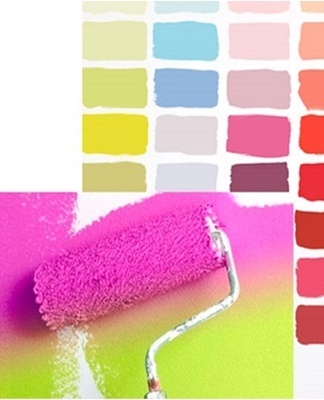
Additional tips and tricks
What is useful to know about working with polymer aqueous emulsion compositions:
- level the walls before painting, since the composition of water does not hide cracks and roughness;
- additionally treat the surface with antifungal and anti-corrosion agents or use a primer with protective properties;
- do not paint the walls of the bathroom, kitchen with an aqueous emulsion, if they are exposed to sudden changes in temperature and frequent pollution;
- when coloring the composition, try to prepare and use the required amount of paint at a time, otherwise it will be difficult to repeat the color;
- remove spills from clothing and walls with warm soapy water;
- indoors it is best to paint with a brush or roller, as many particles will float in the air of the gun.
In order not to doubt the result, you need to select paint and primer from the same manufacturer.

